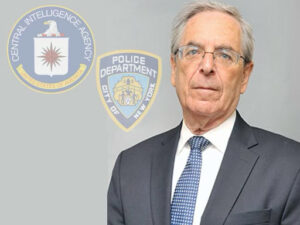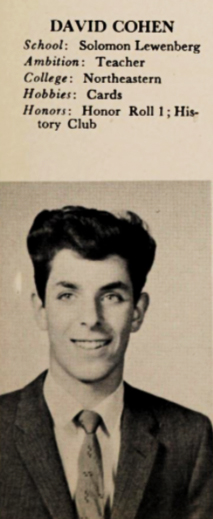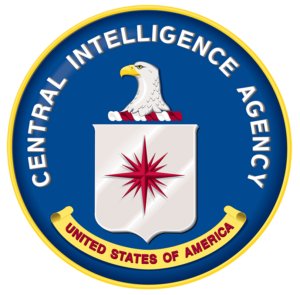Alumni Spotlight
David Cohen, ‘59: ‘Shadow Warrior’

David Cohen, EHS ’59
On December 21, 2013, The New York Daily News ran an editorial entitled ‘Shadow Warrior’ praising David Cohen, EHS ’59, for protecting the people of New York from terrorist attacks for 12 years as Deputy Commissioner of Intelligence for the New York Police Department (NYPD). He was appointed by Mayor Bloomberg shortly after the devasting 9/11 attacks:
“He has been one of the keys to keeping this city safe from terror, yet is a man few New Yorkers have ever heard of. He likes it that way…Cohen’s tenure saw 20 New York-centric plots, including 13 busted up by the work of (Cohen’s) intelligence division. His troops stayed ahead of the curve as the threat morphed from enemies based abroad to home grown plotters and then to a mixture of the two. Think plans to topple the Brooklyn Bridge, bomb the Herald Square subway station and use of explosives to flood the Hudson River tunnels…..He deserves hearty applause for an accomplishment few would have predicted in the early dark days (after 9/11). Not a single New Yorker’s life was lost to terror on Cohen’s watch. Remarkable.”

Deputy Commissioner of Intelligence David Cohen (L), NYPD Commissioner Ray Kelly (C) and Deputy Commissioner for Counter-terrorism Richard Daddario (R) inside the Executive Command Center at the NYPD headquarters in New York August 5, 2011. Photo: REUTERS/Lucas Jackson
Prior to being recruited out of retirement by NYPD Commissioner Ray Kelly for the new position, Cohen had a brilliant career at the Central Intelligence Agency (CIA) culminating in his appointment as Deputy Director of Operations. He was responsible for the intelligence collection operations of the National Clandestine Service. His eyes were the last to review every daily political, economic and military assessment prepared by the CIA for the President and senior national security advisers.
Cohen’s attributes his lofty, successful career to “dumb-luck.” We don’t think so.

David Cohen in the 1956 English Yearbook
Cohen grew up in a working- class family in the Dorchester-Mattapan area of Boston populated by a majority of Jewish families. At first traveling to English High on Avenue Louis Pasteur in the Fenway which then drew a student body from every district in the city “was my first departure from my neighborhood and a bit intimidating. English High was a co-mixture of neighborhoods.” He soon saw the mixture of the different ethnic backgrounds (Irish, Italian, Jewish and Blacks) of students as a positive for him and “part of the maturing process. A process you had to go through in order to prosper in life. English High and its people gave me a broader perspective of the world around me. It helped me prepare for the complexities of life in terms of people and how to deal with issues. I learned how to interact with people, how to bob and weave. I made terrific friendships at English. I remember we had to wear ties, I marched in the schoolboy parade, the English-Latin game and loved the hot dogs they served in the cafeteria on Thursdays. I used to have to bum money from friends to buy the hot dogs—but I paid everybody back.”
English High and its people gave me a broader perspective of the world around me. It helped me prepare for the complexities of life in terms of people and how to deal with issues.
Cohen was not always a model student. He carved the name of his girlfriend inside a heart on his homeroom desk. He can be forgiven for that since he married her, and he and Roni have been together for over 60 years. Cohen says his time in Boston and at English High also helped him further develop his street-smarts.
After English High, Cohen earned his undergraduate degree at Northeastern University followed by a Master of Artis in Political Science from Boston University.
He then “took the next step up the escalator” and applied and was accepted to the CIA. “It was exciting and scary,” he says and spent his first six months at the agency in a career training program. That began a 30 year plus career at the agency in which he served in multiple senior positions. He couldn’t go into specifics, but Cohen’s tenure at the CIA was marked by his leadership in combating global terrorism, international organized crime, narcotics trafficking, money laundering and the proliferation of weapons of mass destruction. “The CIA was the greatest organization ever created by the US government,” he proudly says.

Cohen’s career covered the evolution of the CIA.
In addition to serving as Deputy Director of Operations, (he was once described by a New York Times reporter as a “spy-master,”) he also served as Associate Director for the Directorate of Intelligence where he oversaw the analysis and dissemination of foreign intelligence. Before this post he worked as the Deputy Director of Global Issues and Deputy Director of Economic Research.
Cohen’s career covered the evolution of the agency. Many CIA staff had served in the Office of Strategic Services (OSS) which was formed in WW II when he first arrived. As time went on new challenges for the agency arose during the Vietnam war and the post-cold war eras. Ironically he says the cold-war which centered on the US-Soviet rivalry was easier to deal with because there were “clearly defined guard rails. It is now a more complex world with multiple, different threats and a wider range of issues like terrorism and narcotics.”
Cohen “retired” from the CIA in 2000, but when Police Commissioner Kelly called and asked him to help remake NYPD’s anti-terrorism and anti-crime capabilities in a post September 11 world, Cohen said, “yes, I had no choice.” Kelly assigned him the mission of building an international counter terrorism intelligence program with the goal of preventing further attacks which he did successfully. “We concentrated on anti-terrorism, anti-crime, citizen safety at public events and protection of public figures.” As the Daily News editorial attests his 12-year tenure was a complete success with no loss of life from terrorism.
Cohen “flunked retirement” and still works as a Senior Advisor to one of America’s Normandy D-Day heroes Hank Greenberg at Starr Holdings, a global financial organization.
Asked what America’s biggest threats in the future might be, Cohen says that’s impossible to predict: “For three months it could be China, or then Putin, or then terrorism, or then cybersecurity. There will be short, intermediate and long-term threats. You could do a five-year budget for any of them and then get blind-sided.”
For a man who has had awesome responsibilities for protecting the nation he is a remarkably humble man. “I have been blessed and lucky to serve and work with some great Americans. As they say, God protects drunks, little children and David Cohen.”
